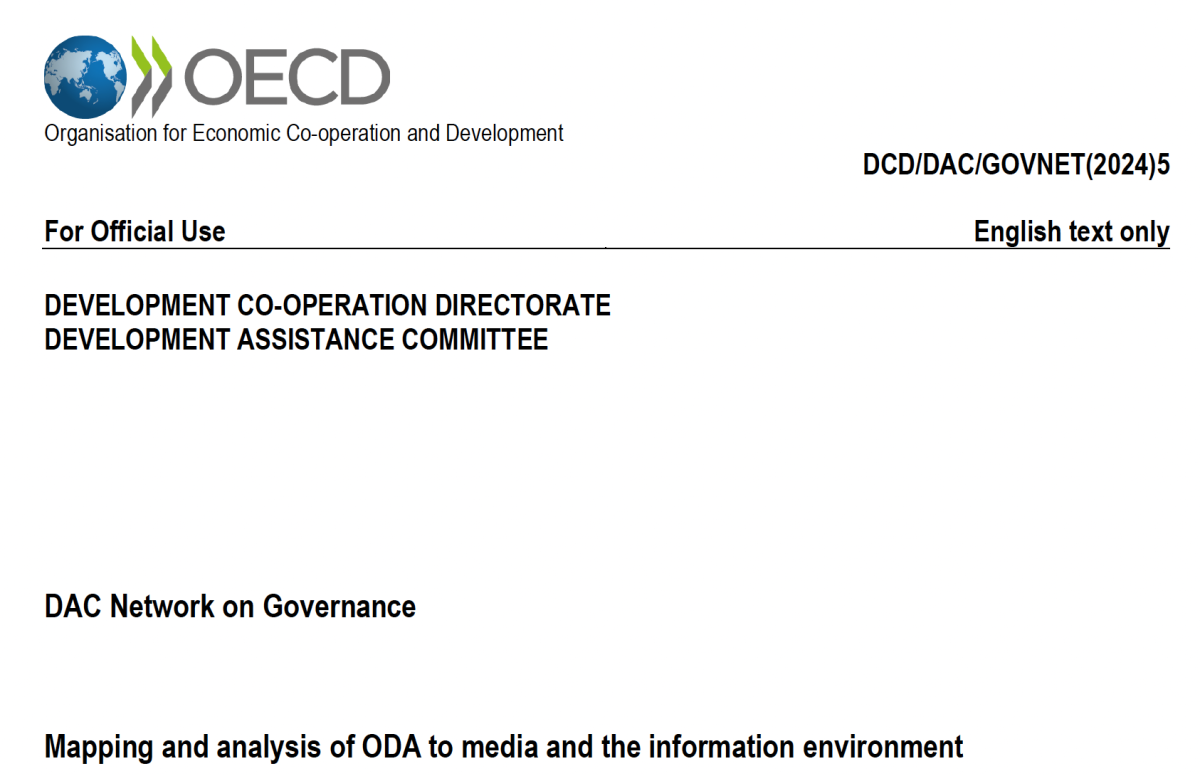
Why governments drag their feet on climate action - and what to do about it. New blog from TPP Director Neil McCulloch
In March 2023, the Intergovernmental Panel on Climate Change released a Synthesis report of its huge sixth assessment report, pointing out that greenhouse gas emissions must fall dramatically – starting immediately – for us to have any chance of keeping the global temperature within 1.5 degrees above pre-industrial levels by 2100. Yet the report did not garner nearly as much attention as previous ones for one simple reason. Everyone knows that the actions needed are not happening.
The world is dramatically off-course for meeting its 1.5 degree target. At current rates, we won’t meet a 2 degree target by 2100, despite plenty of scientific evidence of the devastation that this level of temperature rise would cause. And, as each year the world fails to reduce emissions by the amount required, the emission reductions required in future years to ‘keep 1.5 alive’ seem more and more implausible. Emissions now need to reduce, annually, by more than the massive drop in emissions that took place during the COVID pandemic. But last year, emissions didn’t go down – they soared.
The response to this depressing reality from many advocating urgent action to tackle climate is that we must try harder. That the targets MUST be met. That failing to do so will result in catastrophe. This blog argues that this is the wrong approach. That the rallying cry to keep on pushing forward is unlikely to work unless we have a better understanding of the political barriers to doing so.
Urgent action is needed. It would be much better in the long-run, for the planet, and for us as a species, if were we to take strong actions to reduce emissions. But we will not get the urgent action needed by demanding that politicians do things that are not politically feasible. They will simply not happen. While we must keep on advocating that politicians do hard things to make faster progress, we need to start by understanding why changes are not happening at anything like the speed we need. In other words, we need a deep understanding of the underlying politics constraining climate action, to help design actions that will work.
There are five reasons why governments around the world are dragging their feet on climate action. They are inter-related but together they explain why we are not moving as fast as we should.
- Short-termism. As humans we focus on what is happening to us now. Yes, we think for the future – but, for good evolutionary reasons, we are programmed to prioritize the present. Most people will agree, in principle, that hitting our climate targets would be a good thing – but today I have to get to work and I don’t want my petrol to be expensive. Of course, we think about our children and our grandchildren and want the best for them. We are willing to make sacrifices for them … but first we have to feed them, clothe them, house them, educate them and all of this costs money here and now. In many societies, this short-termism is reinforced – by consumerism, finance, quarterly profit statements, the news media cycle and social media algorithms. But whether our short-termism is innate or driven by our environment, political leaders know that citizens primarily care about the here and now and so they focus on that too.
- Competitive politics. In almost all countries, politics is a competitive business. This isn’t about democracies vs autocracies – it is the nature of politics. Even in countries that are not democratic, leaders that fail to respond to widespread discontent are vulnerable, not to action from their citizens, but from other political actors who can use failure to tackle immediate problems as a reason to undermine the leader and take their job. As a result, almost all politicians have to be responsive, at least to some degree, to the concerns of the people. And, their concerns are mostly with the here and now.
- Absence of better alternatives. Many people are happy to be green if there are alternatives that perform as well (or better) than the existing fossil fuelled approach at no higher cost. I won’t drive to work if I can live within cycling distance; or if there is a nice, cheap electric bus that can take me there. But what if the reality is that I can only afford to live far from work; and there is no electric bus? Of course, alternatives are developing fast, but many of them aren’t yet as good, or cost far more. And even where good alternatives exist, we often don’t adopt them. I know that insulating the house would save the planet and save me money – but it’s a hassle and I’m busy. I know that getting on a train will result in far fewer emissions than a plane – but all my friends are still flying. Sometimes, social and cultural norms can affect the adoption of more climate friendly ways of living.
- Other priorities. While action on climate change should be the number one priority for governments around the world given its catastrophic implications for everyone’s future, it is not the top priority for most people. I am worried about my livelihood, or my health, or whether my neighbourhood is safe, or my daughter’s school, or myriad other things. Although action in every area should take account of climate change, many of the actions needed to fix every day problems are not ‘climate’ actions. For example, if the teachers aren’t turning up at my daughter’s school, I want the government to ensure they do. This is not directly a climate problem, but that doesn’t make it less important. And if these are the things that people care about, then these are the things that politicians have to address. Climate change may be about everything, but not everything is about climate change.
- Limited resources. Tackling climate change costs money. Yes, some things will pay for themselves. Some kinds of renewable energy are just cheaper than fossil-fuelled power so switching is happening quickly because it makes financial sense. But many, perhaps most, things cost money. To insulate homes, to electrify the entire transport fleet, to plant a billion trees. That money comes from taxes or higher prices. There is not a great public clamour for either and, as noted above, the same money has to pay for all the other priorities that we care about too.
Together these five factors explain why politicians behave the way they do. Politicians need to balance strong policies to tackle climate change – and investment in climate friendly alternatives – with addressing people’s immediate concerns in myriad other areas. But budgets are tight, the low carbon alternatives are not always easy or cheap, and they face constant pressure from political rivals, as well as vested interests pulling in the opposite direction.
Given the above, it’s easy to feel that we will never respond effectively to climate change. But we can, we just need a different approach. We won’t achieve much by shouting ever louder that we must do A, B, or C. Instead, we need to ask “given the reality of the context we face, what are politically feasible ways of making the most progress possible?”
To answer this question, we need to start by getting a better understanding of each individual context. What is possible in one place may not be in another. Understanding the underlying political economy of climate action in each context can help us to identify feasible pathways of change. That is, ways in which actors can form coalitions of mutual interest and pursue actions that are politically feasible that achieve climate objectives. That might be political parties with a rural base working with agricultural companies and farmers to introduce lower emissions farming methods. Or Ministry of Industry officials, working with local car manufacturers, to champion the electrification of transport. Or health professionals working with local communities near coal-fired power stations to demand early closure.
Getting beneath the surface of every context is the best way of designing programmes and policies in every sector that can navigate around the constraints of short-termism and budget, invest in alternatives and construct locally grounded political narratives that move beyond urging that action must be taken, to finding feasible ways of ensuring that it is.
Political economy analysis for climate action - new course launched starting October 2024
The Policy Practice is delighted to be re-running the popular online course on Political Economy Analysis for Climate Action. This course explains how political economy analysis can be used to understand the challenge of action on climate change and to design more effective interventions. The course will consist of eight, 2-hour online sessions from 4 October to 12 November 2024. For more information and to register please click below or see our flyer here.
The political economy of energy transitions in Ghana, Zambia and Vietnam - Policy Brief 17
Written by Sam Bickersteth with Neil McCulloch and Meron Tesfamichael, this policy brief draws out some of the common constraints hindering the energy transition in Ghana, Zambia, and Vietnam and many other countries in the Global South. It also shows how political economy analysis can help to identify politically feasible pathways of change in each country demonstrating the importance of such analysis as an essential tool to understand energy transition.
Media support: aid funding does not match donor rhetoric
Laure-Hélène Piron (TPP Director) presented her analysis of official development assistance to media and the information environment to the Governance Network of the OECD Development Assistance Committee on 6 March 2024.
The draft report shows that the rhetoric of governments which support freedom of expression and condemn disinformation is not matched by sufficient funding. And too little directly goes to local media organisations.



